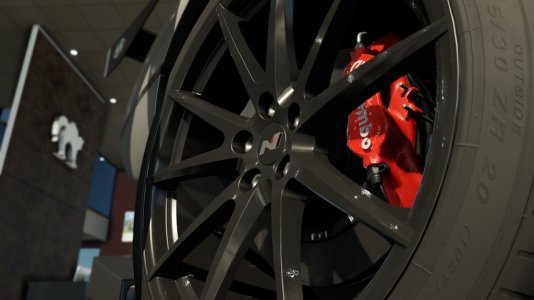It's no where near as simple as what you're making out. The first proper motor car to run disc brakes for performance was a Jaguar at Le Mans. Only after that did a production car run it. Similarly, carbon fibre may have been invented for and by aerospace, but it made its introduction to cars in motor racing. And now we have production vehicles with new materials. And then theres all the safety improvements. And then LED headlights.
It is completely wrong to say that most road car technology comes from racing cars. But it's equally wrong to suggest that it is a myth. As usual, it is a shade of grey. Some tech makes it. Some doesn't. Some needs racing adaption before it can be used in a production vehicle.
Since power stations can be created that are clean (such as solar, wind, wave), and are increasingly common (especially here in Scotland), that makes it quite a good change. However I suspect you're trying to imply that because there are power plants, that are for example, oil based, that somehow this cancels out the gain from an electric car, which isn't the case.
For a regular petrol car the hydrocarbons need to be pumped onshore and refined several times over to get it to the petrol stage. Each part of the process is using energy, which makes the final product less efficient. And then you need petrol tankers to take the petrol to the petrol station, thus using more fuel during that process. And then the petrol engine in a car only operates at about 40% efficiency. The rest is lost to heat, sound and vibration.
With an electric car, on the assumption that the car is charged using electricity sourced from an oil and gas power plant, you still need to pump the hydrocarbon onshore and do some refining, but less than the petrol stage. Most oil and has power plants tend to be alongside the refineries, or a short distance from them (for example. Sullum Voe Gas Plant and Shetland Power Plant), which means that you cut out the transport costs of the fuel afterwards. And even for plants further away, you tend to have pipelines built and it's pumped to it. And then, when it does finally get put into a generator, because the generator is *massive*, it can be built using much stronger and heavier materials that you couldn't use in a car engine, which means that you get much more efficiency out of it. A modern gas turbine generator used onshore is around 60% efficiency. So ignoring all the other loss of energy during transport and refinery, and looking only at the burning of a hydrocarbon to produce energy, you're gaining 20% efficiency off the bat. Since the gas used in a turbine generator is usually unrefined, and simply separated straight off of the oil, there's no loss of energy when doing it (unlike petrol). This is how oil rigs generate power - they use the gas either directly from the well, or separated from the oil straight out of the well, into generators.
Source: I work in the oil and gas industry, and the renewables, specifically wind turbines.
AND, since this is talking about Tesla in the electric GT series, the primary source of electricity for Tesla cars are the Supercharging stations, which not only are 100% solar (so clean), but also generate enough surplus to put into the grid, in theory, lowering your electric bills (in reality, the money goes to big bosses, but that's hardly Teslas fault). And since the acquisition of solar city, you'll be able to buy electric solar panels for your home that look like normal roof tiles, bundled with your Tesla.
I'm no hippy. I don't like the green agenda. I like a Corvette C7.R v8, all 67 litres of magnificence. I don't like electric racing cars because they feel emotionless. But lets not pretend that just because we all love the noise, passion and smell of a petrol racing engine, that electric cars, especially the Tesla range, are not a positive step for the world as a whole. If I won the lottery, I'd buy a Bentley Continental, with its huge engine. And I'd rev the hell out of it so I can hear it in all its glory, and I wouldn't care less about the fuel I'm burning. But beside the Bentley Continental will be parked a Tesla Model S P100D, because it's an incredible machine, and we DO need to be moving to electric vehicles for most things. But that doesn't mean we can't have a good old fashioned internal combustion engine for us petrol heads.
Edit: People need to look at the bigger picture of global activity. The actual impact motorsport has itself is so tiny it cannot be measured. But it does take motor racing moving in a direction for road cars to follow. Hybrids really were not the in thing (none of us want a Prius). But since LMP1 and F1 have been running energy recovery systems, we've started seeing supercars with similar tech, and even plugin hybrids from the likes of Audi. It isn't about where the exact technology originated, but the bigger picture as a whole and attitude of people.











